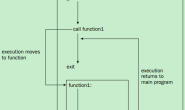C++计算一个大数的阶乘
// calculate large factorials (factorials above 12!)
// note that 13! already exceeds unsigned long
// a Dev-C++ tested console program by vegaseat 26mar2005
#include <cmath>
#include <iostream>
using namespace std;
int main()
{
unsigned int nd, nz; // number of digits
unsigned char *ca; // char array to hold result
unsigned int j, n, q, temp;
int i;
double p;
while(1)
{
cout << "\nEnter an integer to calculate factorial (0 to exit): ";
cin >> n;
if (n == 0) break;
//calculate nd = the number of digits required
p = 0.0;
// p is really log10(n!)
for(j = 2; j <= n; j++)
{
p += log10((double)j); // cast to double
}
nd = (int)p + 1;
// allocate memory for the char array
ca = new unsigned char[nd];
if (!ca)
{
cout << "Could not allocate memory!!!";
exit(0);
}
//initialize char array
for (i = 1; i < nd; i++)
{
ca[i] = 0;
}
ca[0] = 1;
// put the result into a numeric string using the array of characters
p = 0.0;
for (j = 2; j <= n; j++)
{
p += log10((double)j); // cast to double!!!
nz = (int)p + 1; // number of digits to put into ca[]
q = 0; // initialize remainder to be 0
for (i = 0; i <= nz; i++)
{
temp = (ca[i] * j) + q;
q = (temp / 10);
ca[i] = (char)(temp % 10);
}
}
cout << "\nThe Factorial of " << n << " is: ";
// the factorial is stored in reverse, spell it from the back
for( i = nd - 1; i >= 0; i--)
{
cout << (int)ca[i];
}
cout << endl;
// free up allocated memory
delete []ca;
} // while
return 0;
}



